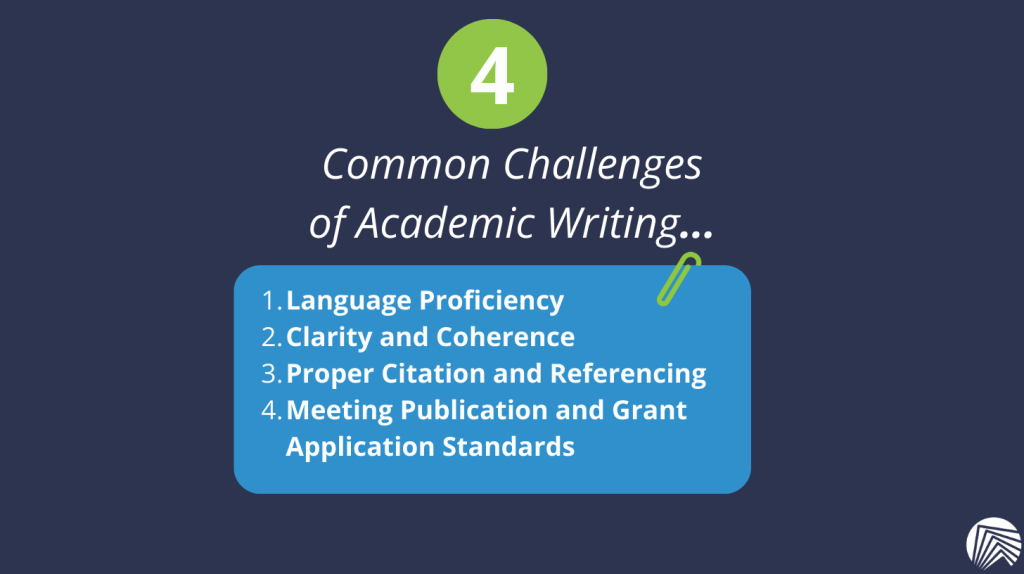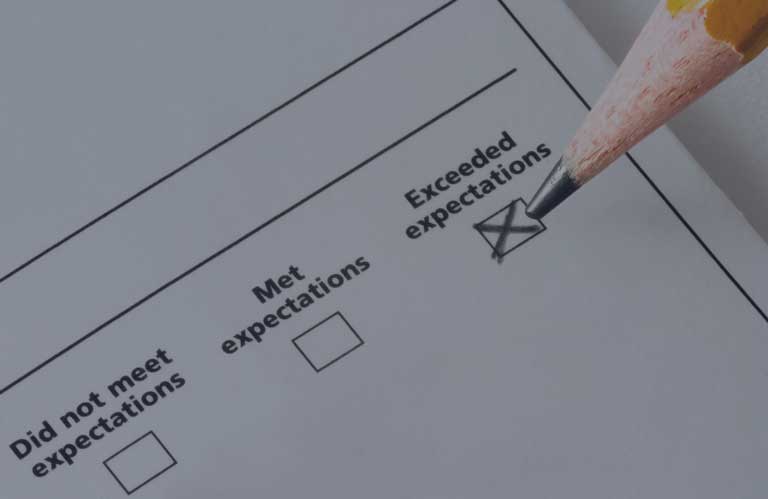Highlights
- Addressing Common Academic Writing Challenges: Academics face several challenges in writing, including language proficiency, clarity, coherence, and adherence to citation styles. By addressing these challenges, professional science editing services contribute significantly to overcoming barriers that can hinder effective scholarly communication and dissemination of research findings.
- Benefits Across Career Stages: Professional science editing services are beneficial for academics at all career stages. From assisting graduate students in thesis writing to guiding early-career researchers through the publishing process and helping established academics maintain high writing standards, these services cater to a diverse range of academic needs, contributing to career advancement.
- Enhancing Clarity and Coherence: Professional editing services are beneficial for improving language accuracy and fluency, and enhancing clarity and coherence in academic writing. Editors can help streamline complex ideas, ensure logical flow, and address citation errors; ultimately contributing to a more impactful and polished manuscript.
- Overcoming Stigma and Misconceptions: Misconceptions about professional editing services are common, and the collaborative nature of the editing process and its positive impact on academic integrity and career advancement should be emphasized. By reshaping perceptions, authors can embrace professional editing as an empowering and constructive resource.
- Success in Securing Funding: A case study of a small pharmaceutical company in Colorado highlights the critical role played by professional editing services in securing an SBIR grant. Under tight deadlines, the editing team collaborated closely with the company, resulting in a commendable score and successful funding. This success underscores the impact of polished grant proposals on accessing crucial financial support for innovative projects.

Introduction
Catapult your academic career by unleashing the power of science editors! Academic writing is the cornerstone of scholarly success, driving knowledge dissemination, intellectual discourse, funding triumphs, and career advancement. The path to excellence, however, is riddled with challenges – language intricacies, structural hurdles, and citation tightropes. How can academics not just meet but exceed scholarly standards? Enter professional editing services – more than just proofreading, these allies offer a transformative partnership to refine your academic manuscripts. Read on to discover why academics at every career stage can significantly benefit from expert editing services. By addressing language intricacies to ensuring adherence to publication standards to producing compelling grant applications, these services can help elevate the quality and impact of academic work, thereby advancing your academic career and contributing to the broader advancement of knowledge.

Common Challenges of Academic Writing
Language Proficiency:
Academic writing demands a high level of language proficiency, and scholars often encounter challenges related to grammar, vocabulary, and style. The intricacies of academic discourse require a nuanced command of language to articulate complex ideas accurately and concisely. Effective communication enhances both the impact of research and the comprehension of scholarly contributions by a global readership.
Clarity and Coherence:
Achieving clarity and coherence in academic writing is a perpetual struggle for many. Complex concepts, intricate theories, and multifaceted research findings must be presented in a manner that is not only comprehensible to a specialized audience but also conducive to broader understanding. Ensuring a logical flow of ideas, maintaining a cohesive narrative, and avoiding ambiguity are constant challenges that, when unaddressed, can compromise the overall quality of academic work.
Proper Citation and Referencing:
Accurate citation and referencing are non-negotiable aspects of academic writing, yet they pose persistent challenges. Scholars must navigate through diverse citation styles—AMA, APA, MLA, Chicago, and Vancouver among others—each with its own set of rules. Failure to adhere to proper citation practices can lead to accusations of plagiarism, diminishing the academic integrity of the work and potentially jeopardizing a scholar’s reputation. Poor citation practices can reflect negatively on the entire manuscript.
Meeting Publication and Grant Application Standards:
As academics strive to contribute to their respective fields, getting their work published in reputable journals becomes a paramount objective. Journal-specific formatting requirements, adherence to ethical guidelines, and addressing reviewer feedback necessitate a meticulous approach. Failure to meet publication standards can result in rejection or significant delays in the dissemination of valuable research. Grant applications have specific requirements, from formatting to the inclusion of specific keywords for proper routing. Many of these fine details are easily overlooked and can lead to rejection of the application.
Addressing these challenges requires more than just technical proficiency; it demands a keen understanding of the nuances of academic writing. Scholars often find themselves immersed in the content of their research, making it challenging to maintain objectivity and identify areas that may impede the clarity and impact of their work. This is where professional science editing services prove invaluable, offering a fresh perspective and the expertise needed to navigate the intricate landscape of academic writing. Below, we explore how science editing services effectively tackle each of these challenges, contributing to the refinement and enhancement of academic manuscripts and grant applications.

Benefits of Professional Science Editing Services
Ensuring Language Accuracy and Fluency:
Correcting Grammar and Syntax Errors:
Professional editing services meticulously address grammatical and syntactical errors that may elude even the most conscientious scholars. From misplaced modifiers to subject-verb agreement, these services navigate the intricacies of language rules, ensuring that the manuscript is free from errors that could decrease clarity and undermine its credibility and impact.
Improving Sentence Structure and Word Choice:
Word choice and sentence structure significantly influence the readability and persuasiveness of academic writing. Professional editors provide invaluable insights into optimizing sentence structure and refining word choice, elevating the overall quality of prose. This enhancement not only facilitates a more engaging reading experience but also ensures that the intended message is precisely conveyed.
Providing Critical Oversight:
A professional science editor plays a vital role in scrutinizing the reporting of scientific research findings, adeptly identifying omissions or errors that authors might overlook. Through a meticulous review, the editor ensures the coherence and accuracy of the manuscript, pinpointing potential gaps in information, inconsistencies, or overlooked details. Their expertise not only lies in grammatical precision but extends to a comprehensive understanding of scientific content, thereby enhancing the overall quality and reliability of the research publication.
Enhancing Clarity and Coherence:
Streamlining Complex Ideas:
Academic writing often involves exploring intricate concepts and theoretical frameworks. Professional editors excel in distilling complex ideas into clear, concise, and comprehensible prose. By identifying and simplifying convoluted passages, they enhance the accessibility of the content without sacrificing the depth of scholarly inquiry.
Ensuring Logical Flow and Organization:
A well-organized and logically structured manuscript is essential for effective communication. Professional editors critically assess the organization of ideas, ensuring a seamless flow from one section to another. This process involves restructuring paragraphs, refining transitions, and highlighting the logical progression of arguments, ultimately contributing to a more cohesive and impactful narrative.
Ensuring Adherence to Citation and Referencing Styles:
Correcting Citation Errors:
In the complex landscape of academic citation, errors can be subtle yet consequential. Professional editors meticulously review citations, verifying accuracy and consistency. This includes rectifying mistakes in citation formats, addressing issues with in-text citations, and ensuring that all sources are appropriately credited, mitigating the risk of plagiarism and upholding academic integrity.
Ensuring Consistency in Formatting:
Different academic disciplines and journals as well as funding agencies often have specific formatting requirements. Professional editors are well-versed in these nuances, ensuring that the manuscript/application consistently adheres to the prescribed style. This attention to detail not only eliminates potential obstacles during the peer review process but also reflects a commitment to the professional standards of the academic community.
Meeting Publication/Application Standards:
Compliance with Journal Guidelines:
Each academic journal has unique guidelines and requirements for manuscript submission. Professional editing services specialize in navigating these intricacies, ensuring that the manuscript aligns with the specific expectations of the target journal. Adherence to the journal’s style guide enhances the likelihood of acceptance and expedites the publication process.
Addressing Specific Requirements of Academic Publishers:
Academic publishers often have additional requirements beyond standard formatting and citation guidelines. These may include adherence to ethical standards, disclosure of conflicts of interest and the use of artificial intelligence, and other specific criteria. Professional editors work closely with authors to address these publisher-specific requirements, facilitating a smooth and successful publication journey.
Complying with Grant Application Requirements:
Each funding agency has specific requirements for grant applications. Failure to meet even one of these requirements can prevent an application from being reviewed. Poor logical flow or gaps in logic make it difficult for reviewers to understand the importance of the proposed research or to follow how the work will be performed. Professional science editors excel at implementing minute details and ensuring that the proposal is logical and intuitive for the reader. An application that is easier to read and understand is more likely to receive a high score and be funded.
In essence, professional editors act as invaluable collaborators, not only refining the technical aspects of academic writing but also enhancing the overall clarity, coherence, and compliance with publication standards. The partnership between scholars and professional editors is a symbiotic relationship that enhances scholarly communication.

Who Can Benefit from Professional Editing Services?
How Graduate Students Benefit from Professional Editing
Thesis and Dissertation Editing:
Graduate students often grapple with the monumental task of crafting a thesis or dissertation, where the stakes for precision and clarity are exceptionally high. Professional editing services offer specialized support in refining these lengthy and complex documents. Editors focus on improving language accuracy, enhancing structural coherence, and ensuring that the research is communicated with the utmost clarity and consistency, contributing to the overall scholarly merit of the work. Professional editors can be important contributors to a graduate student’s education.
Preparing Manuscripts for Publication:
Transitioning from academic coursework to publishing research is a significant milestone for graduate students. Professional editing services assist in transforming research papers into publishable manuscripts. By aligning the manuscript with the specific requirements of target journals and addressing potential barriers to acceptance, editors play a crucial role in helping graduate students navigate the intricate process of getting their work published.
How Early-Career Researchers Benefit from Professional Editing:
Navigating the Publishing Process:
Early-career researchers face a steep learning curve when it comes to navigating the publishing landscape. Professional editing services provide essential guidance, helping researchers understand the intricacies of manuscript submission, peer review, and the revision process. This support is invaluable in demystifying the often complex and opaque world of academic publishing.
Increasing Chances of Acceptance in Reputable Journals:
The competition for publication in reputable journals is fierce. Professional editors assist early-career researchers in fine-tuning their manuscripts to meet the stringent standards of these journals. By enhancing the overall quality of writing, addressing specific journal requirements, and ensuring flawless adherence to citation styles, editors significantly increase the likelihood of acceptance, thereby bolstering the researcher’s academic reputation.
Writing High-Impact Grants:
Even the most conscientious researcher may find it difficult to objectively assess the clarity and logical flow of their own grant proposals. Relying on colleagues to provide this guidance can be fraught with problems as they often have neither the time nor, perhaps, the skillset to provide appropriate and helpful feedback. A professional science editor has devoted their career to helping with precisely these sorts of issues and will work collaboratively with the investigator to maximize the odds of the application being reviewed and scored.
How Established Academics Benefit from Professional Editing:
Maintaining a High Standard of Writing:
Even seasoned academics can benefit from professional editing services to maintain the highest standards of writing. As scholars progress in their careers, the demands for clarity, precision, and adherence to publication standards remain paramount; while the time available to devote to these demands diminishes. Professional editors offer a fresh and objective perspective, helping established academics refine their work and uphold the rigorous standards expected in academic writing.
Enhancing the Impact of Research Contributions:
Established academics often find themselves balancing numerous responsibilities, from teaching to research leadership to administration. Professional editing services play a critical role in ensuring that their research contributions continue to have a lasting impact. By refining manuscripts for conferences, journal submissions, or book proposals, as well as grant applications, editors contribute to the dissemination of research and the pursuit of funding in a form that maximizes its influence within the academic community and beyond.
Time Management:
Time is a scarce commodity for all academics. An enormous amount of time is spent polishing a manuscript to conform to the journal’s requirements, ensuring consistency throughout the manuscript, and selecting the correct tone and active/passive tense – small but critically important aspects of completing a manuscript. Professional science editors routinely handle all of these tasks; freeing up time for academics to focus their efforts on research, running the lab, and handling administrative duties. An expert science editor can help researchers maintain a better work-life balance by decreasing the time spent writing or revising manuscripts.
In summary, professional science editing services cater to a diverse range of academic needs across career stages. Whether guiding graduate students through the rigors of thesis writing, assisting early career researchers in navigating the complex publishing landscape, or supporting established academics in maintaining the highest standards, these services serve as invaluable allies in the pursuit of academic excellence. The collaborative partnership between scholars and professional science editors emerges as an essential factor in advancing individual careers and contributing meaningfully to broader scholarly discourse.

Overcoming Stigma and Misconceptions
Addressing Concerns about Academic Integrity:
The association between professional science editing services and concerns about academic integrity is a common misconception that needs to be dispelled. Some scholars may fear that seeking external assistance compromises the authenticity of their work. It is crucial to understand, however, that professional science editing is not about rewriting content or injecting external ideas into the manuscript or grant application; instead, it is a collaborative process focused on enhancing clarity, coherence, and adherence to academic standards. In this section, we discuss how addressing these concerns head-on can redefine the perception of professional editing, positioning it as a legitimate and ethical ally in the academic journey.
Highlighting the Collaborative Nature of Editing:
Professional science editing services operate in a collaborative framework, where the primary goal is to work alongside the author rather than supersede their voice. Science editors serve as partners in refining and optimizing the manuscript, ensuring that the author’s original ideas and scholarly contributions remain intact. By highlighting this collaborative nature, scholars can overcome the misconception that professional science editing represents a detached or impersonal intervention. Emphasizing the synergy between authors and editors fosters an environment of mutual respect and shared dedication to the enhancement of scholarly work.
Emphasizing the Positive Impact on Career Advancement:
Another misconception that often lingers is the belief that seeking professional science editing assistance implies a deficiency in the scholar’s abilities. On the contrary, engaging with editing services is a proactive step toward improving the quality and impact of academic work. The positive outcomes of professional science editing—such as increased acceptance rates, enhanced publication quality, increased citation rates, and improved readability—contribute significantly to career advancement. By emphasizing the tangible benefits that emerge from this collaboration, scholars can shift the narrative surrounding professional editing from a remedial measure to a strategic investment that enhances the trajectory of one’s academic career.
In essence, overcoming the stigma and misconceptions surrounding professional science editing services involves fostering a nuanced understanding of the collaborative and ethical nature of this partnership. Reshaping perceptions by addressing concerns about academic integrity, highlighting the collaborative dynamics between authors and editors, and underscoring the positive impact on career advancement will position professional editing as an empowering and constructive resource for scholars at all stages of their academic journey.

How to Choose the Right Science Editing Service
Factors to Consider:
Recommendations from Colleagues: Academic researchers should actively seek recommendations for exceptional professional science editing services from their colleagues, leveraging the insights and experiences of peers who have used editorial services. By tapping into the collective knowledge of the academic community, researchers can identify reputable editing services that have demonstrated effectiveness in enhancing the clarity, accuracy, and overall quality of scientific manuscripts, fostering a collaborative environment dedicated to elevating scholarly work.
Reputation and Experience of the Science Editing Service: When selecting a professional editing service, the reputation and experience of the service provider should be paramount considerations. Established science editing services with a proven track record are more likely to deliver high-quality results. Exploring the service’s history, client success stories, and the longevity of its presence in the industry can provide valuable insights into the reliability and efficacy of the editing service.
Specialization in Academic Editing: Academic science writing has its unique conventions, styles, and standards. Choosing a science editing service that specializes in academic editing ensures that the professionals working on your manuscript are well-versed in the nuances of scholarly science communication. Look for services that explicitly highlight their expertise in academic editing, including their experience with various disciplines and familiarity with different citation styles.
Client Testimonials and Reviews: Feedback from past clients serves as a valuable indicator of the service’s performance and customer satisfaction. Reviewing client testimonials provides insights into the experiences of others who have availed the editing service. Pay attention to testimonials that specifically address the impact on publication success, the quality of edits, and the overall professionalism of the service.
Understanding the Editing Process:
Communication with Editors: Effective communication between the author and the editor is crucial for a successful collaboration. A reputable editing service should provide transparent channels for communication, allowing authors to convey their specific requirements, discuss concerns, and seek clarifications. Understanding the communication process ensures that the editing service is attuned to the author’s expectations and goals for the manuscript.
Sample Edits and Feedback: Before committing to an editing service, it is prudent to request sample edits and feedback on a small portion of your manuscript. This allows authors to assess the style, thoroughness, and compatibility of the editing service with their writing. Additionally, feedback on sample edits provides valuable insights into the strengths and weaknesses of the manuscript, helping authors gauge the potential impact of the editing service on their work.
Choosing the right editing service involves a thoughtful evaluation of these factors, ensuring that the selected service aligns with the specific needs and goals of the author. By prioritizing reputation, expertise in academic editing, and client testimonials, authors can make informed decisions that enhance the likelihood of successful collaboration and the ultimate success of their academic writing endeavors.

Case Studies of the Benefits of Professional Science Editing
Success stories of academics who benefited from professional editing (note: personal and professional details have been altered to maintain confidentiality).
Early-career scientist looking for an edge
Dr. MW, an early-career researcher in the field of cardiology faced challenges in articulating the significance of her research in a clear and compelling manner. Seeking assistance from SciTechEdit International, she collaborated with their experienced editors to refine her manuscript for submission to a high-impact cardiology journal. The result was not only acceptance for publication but also subsequent invitations to speak at international conferences, showcasing how professional science editing played a pivotal role in elevating her research profile.
Small pharmaceutical company needs helps with a grant
Seeking a Small Business Innovation Research (SBIR) grant, a pharmaceutical company in Colorado engaged SciTechEdit International to enhance its proposal. The collaboration involved close scrutiny and polishing of every aspect, from scientific content to language precision. SciTechEdit International significantly improved the proposal’s clarity and coherence, offering valuable insights to bolster the scientific rationale and align with the funding agency’s criteria. The refined grant was submitted, leading to exceptional results—the company received a commendable score and successfully secured the SBIR grant. This success underscores the instrumental role of SciTechEdit International in helping innovative companies access crucial funding opportunities.
Established academic trying to get to the next level
Professor RC, an established academic in the field of computational neuroscience, recognized the importance of maintaining a high standard of writing for his ongoing research projects. He contacted SciTechEdit International and found that engaging in the collaborative process with their editors not only improved the clarity of his manuscripts but also led to a surge in citation rates. The polished writing resonated with fellow researchers and attracted the attention of policymakers, enhancing the impact of his contributions in both academic and public spheres.
Before-and-After Examples of Edited Academic Work:
Original Manuscript – Chemistry:
Before professional editing, an intricate organic synthesis chemistry manuscript faced challenges with convoluted sentence structures and inconsistent terminology usage. Through the collaborative efforts of the author with editors at SciTechEdit International, the refined version showcased streamlined ideas, improved coherence, and precise language. This transformation not only led to publication in a prominent chemistry journal but also garnered praise for the clarity with which a complex chemical synthesis was communicated.
Initial Draft – Medical Research Paper:
An initial draft of a medical research paper had issues with logical flow and adherence to a specific journal style and requirements, hindering its acceptance in reputable medical journals. Professional science editors at SciTechEdit International helped to identify and remediate the gaps in logic, and meticulously corrected citation errors to ensure consistency in formatting. The final version not only demonstrated clear and logical writing but also adhered to stringent publication standards, leading to the journal selecting the paper to be featured on the cover. This exemplifies how meticulous editing opens doors to broader recognition in the academic community.
These case studies illuminate the tangible impact of professional editing on academic success. From early-career researchers to established academics, collaboration with editing services has proven instrumental in overcoming writing challenges, navigating publication processes, and ultimately enhancing the visibility and impact of academic contributions.
Conclusion
Recap of the Importance of Professional Editing in Academia:
In the intricate realm of academia, where precision, clarity, and adherence to stringent standards are paramount, professional editing emerges as a linchpin for elevating the quality and impact of scholarly work. This article underscores the multifaceted challenges faced by academics in their writing endeavors, ranging from language proficiency hurdles to the intricate demands of meeting publication standards. Against this backdrop, the importance of professional editing services becomes clear—a crucial ally in navigating these challenges and refining academic manuscripts to the highest standards.
Encouraging Academics to Consider Editing Services as a Valuable Resource:
Academics at all stages of their careers should consider professional editing services not as mere correctional measures but as invaluable resources for enhancing the depth and clarity of their contributions. Dispelling misconceptions and overcoming any lingering stigma, academics should embrace the collaborative nature of this partnership, recognizing that working with skilled editors is a strategic investment in the refinement and success of their scholarly endeavors.
Final Thoughts on the Impact of Polished Academic Writing on Career Success:
The reverberations of polished academic writing extend far beyond the immediate satisfaction of manuscript refinement. Polished writing is the key to unlocking doors in academia, facilitating the acceptance of research in prestigious journals and enhancing the overall impact of scholarly contributions. The investment in professional editing services is, therefore, not just a commitment to impeccable grammar or formatting – it is a strategic move toward career success. As scholars witness the transformation of their manuscripts into refined, well-crafted pieces, they are equipping themselves with a powerful tool that not only accelerates the publication process but also contributes significantly to career advancement in the competitive landscape of academia. In the final analysis, polished academic writing is not just a marker of professionalism, but gives scholars greater recognition, influence, and success in their academic journeys.
AI Disclaimer: This article was generated with the assistance of ChatGPT, an AI language model, to enhance its content. The AI-generated content was thoroughly reviewed, rewritten, and edited to ensure accuracy and coherence. The authors take full responsibility for this article.




